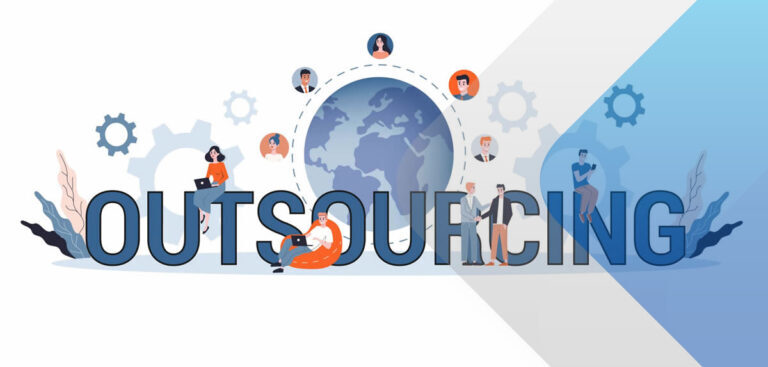The workplace is evolving at an unprecedented pace, and outsourcing statistics reveal just how quickly businesses are adapting.
As labor costs continue to rise and remote work solidifies its place in the corporate landscape, companies are increasingly leveraging outsourced talent to enhance efficiency and drive innovation.
This shift is reflected in the numbers—the global outsourcing market is projected to reach 450 USD billion by the end of 2025, growing at a steady 5,1 % CAGR since 2020.
Businesses across industries are outsourcing not just to cut costs, but to access specialized skills, streamline operations, and stay competitive in a rapidly changing market.
But what do these numbers really mean for the future of work? Let’s see the most critical outsourcing trends, from BPO industry transformations to HR outsourcing insights, giving you the data-driven perspective you need to make informed decisions in 2025.
Why Outsourcing is Important for Business in 2025
Outsourcing has become an essential strategy for businesses aiming to enhance efficiency, reduce costs, and access specialized expertise.
What started as a means to delegate low-value tasks has evolved into a dynamic industry encompassing business process outsourcing (BPO), IT services, finance, human resources, and executive support.
The global outsourcing market is projected to continue expanding, driven by technological advancements, economic shifts, and increasing demand for remote work solutions.
The strategic importance of outsourcing
Companies across industries are leveraging outsourcing to gain a competitive edge. The benefits extend beyond cost savings, offering flexibility, scalability, and innovation. Key reasons businesses prioritize outsourcing include:
Cost efficiency & resource optimization
- Cost reduction is the main reason companies choose traditional outsourcing, with 57 % of executives citing it as the primary driver—mainly through staff augmentation for routine business and IT tasks.
- Outsourcing allows businesses to redirect internal resources to core functions such as product development and market expansion.
Access to global talent & specialized expertise
- The business process outsourcing (BPO) model connects companies with niche experts worldwide, spanning AI, cybersecurity, legal compliance, and advanced analytics. According to Statista, approximately 74 % of companies outsource to access specialized knowledge not available in-house, which also helps mitigate talent shortages.
Scalability & flexibility
- Outsourcing enables agile scaling without the burdens of hiring or investing in new facilities. According to a McKinsey study, outsourcing supports “fast scaling of capabilities” and allows businesses to respond to seasonal or project-based demands. This is particularly relevant in sectors like e-commerce and tech where agility defines competitiveness.
Innovation & technology adoption
- Outsourcing partners are often ahead in AI, cloud computing, and automation. A report from McKinsey Digital highlights how outsourcing IT services accelerates the adoption of cutting-edge technologies—by up to 40 % faster compared to in-house operations.
United States Outsourcing: The Driving Force Behind the Growth
In 2025, the United States continues to lead the global outsourcing industry. U.S. companies are outsourcing operational tasks and also high-level strategic functions to boost productivity, increase scalability, reduce overhead, and access specialized global talent.
The trend reflects a mature outsourcing ecosystem that prioritizes agility, innovation, and long-term value.
IT & Software development
More than 72 % of U.S. tech companies outsource software development, testing, and infrastructure support. Outsourcing enables these firms to accelerate time-to-market and reduce engineering costs by up to 40 %.
Customer support & contact centers
Call centers and AI-driven customer support remain core pillars of Business Process Outsourcing (BPO). About 60 % of mid-to-large U.S. companies outsource customer support operations—especially to Latin America and Southeast Asia—due to cost-efficiency and multilingual support.
HR & Payroll Services
According to PwC, nearly 4 out of 5 U.S. companies outsource at least one HR function—including payroll, recruiting, training, and compliance. Outsourcing HR allows companies to stay compliant with labor laws while improving employee onboarding and retention.
Accounting & financial services
Approximately 40 % of U.S. businesses now outsource financial processes like bookkeeping, tax planning, audits, and forecasting. This trend is especially prevalent among SMEs that benefit from automation and real-time analytics offered by financial BPO providers.
Marketing & content creation
Remote work and the demand for digital content have pushed over 50 % of U.S. companies to outsource digital marketing, content strategy, SEO, and social media management. Outsourcing this function provides creative flexibility and access to specialists with industry expertise.

